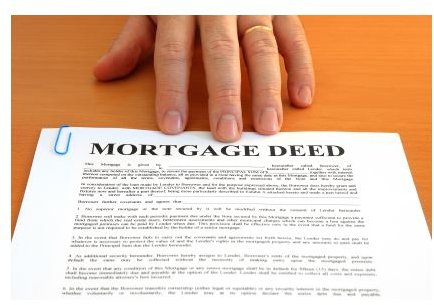Can You Sell Your House and Retain a Prior Mortgage?
Why Do This?
For most people, selling their home means their mortgage would be paid off and they would no longer be responsible for the debt or the monthly mortgage payments. This would also mean that they would not be responsible for taxes, insurance and other factors that must be taken into consideration for home ownership. In some circumstances, however, you may be wondering can you sell your house and retain a prior mortgage. The answer to this is yes, if you work with your lender and the potential buyer. Here are some specific reasons why this may work for you.
A) Buyer cannot afford a mortgage - In some instances a seller has made a deal with a potential buyer to purchase their home. They work together and write up a quit-claim deed with specific clauses regarding when that deed is actually to transfer to the buyer. In these cases, the property transfer would not take place until such time as certain conditions were met. Until those conditions were met, the property would be occupied by the new buyer and the seller would keep their mortgage. In most states, this is called a wrap around mortgage.
B) Transfer property to children - Parents may elect to deed property to their children as a gift. In this case, the property deed could be contingent on a number of factors including the death of one (or both) parents, or conditions such as the parents have the right to remain in the home until the time of their death.
In either case, it is important this be discussed with the mortgage company before undertaking either of option (or any similar option). Most mortgage loan documents contain clauses that prohibit these types of transfer without contacting them. Violating the terms of the mortgage could result in the home title not being clear when the new owner takes the property over.
Lender Approval Requirements
Homeowner’s who are considering this type of a sale must go to their lender and explain the entire procedure to them. In some cases, the lender will approve this type of action provided that they feel that the current homeowner (e.g., the seller) will continue to make mortgage payments, tax payments and insurance payments on the property. It is not out of the realm of possibility that the lender may also ask the seller (eg., the current homeowner) to sign documents to verify they will continue to make payments on the property.
Another serious issue that must be taken into consideration is from the buyer’s perspective. If the seller fails to make mortgage payments or tax payments, the property could go to foreclosure. Without a very strong legal contract, the buyer would have no right to the property except to be able to purchase it at a foreclosure auction.
This method of selling a home is not used very often - in many cases because there are significant liabilities that can be faced by all parties involved. For example, if the home were destroyed by fire, the person who bought the home may not be entitled to any monetary damages until after the mortgage was paid off. There are several legal ramifications involved with this type of real estate transaction. Anyone who is considering this method may want to consider getting expert legal assistance before any documents are finalized.
Contacting appropriate legal counsel will help you when you are trying to decide if you can you sell your house and retain a prior mortgage.
Sources and Image Credits
Sources: Mortgage Loans https://www.mortgageloan.com/finance-glossary/Seller-take-back
IRS.gov - Wrap Around Mortgage https://www.irs.gov/publications/p936/ar02.html
Images: istockphoto.com/Marlee90
